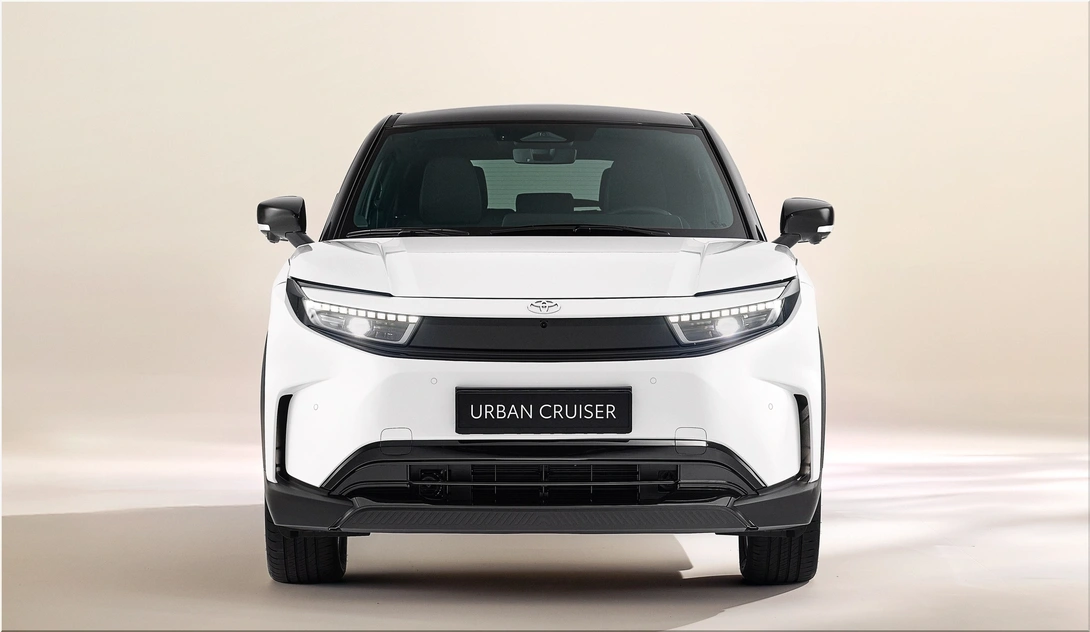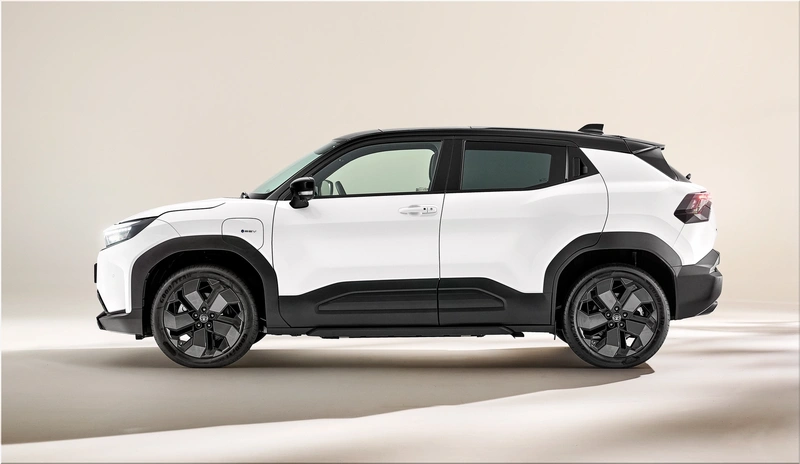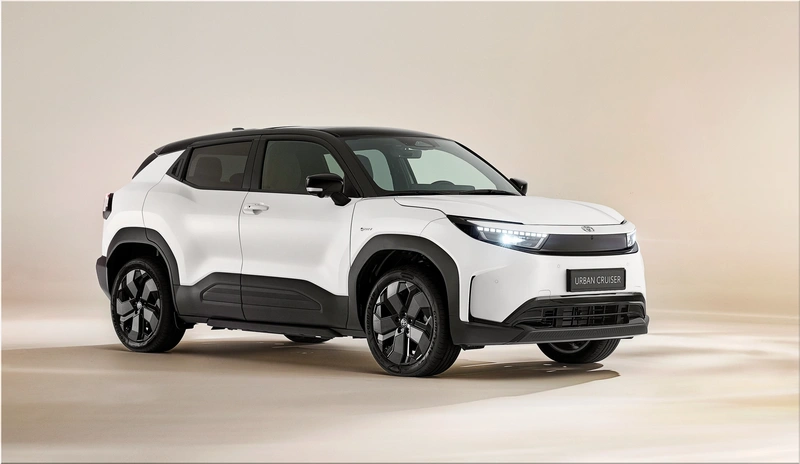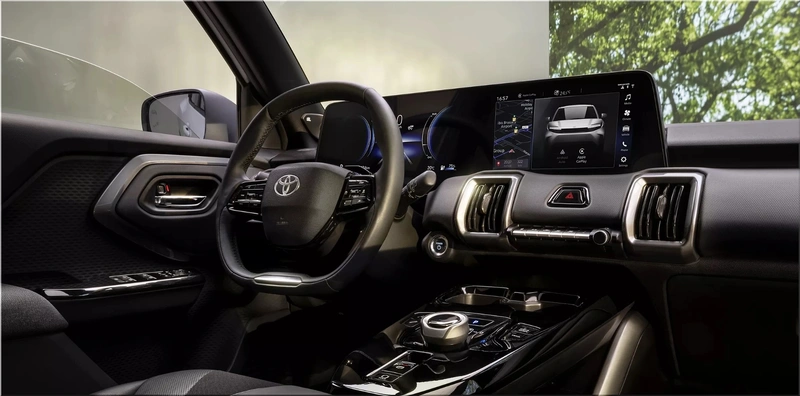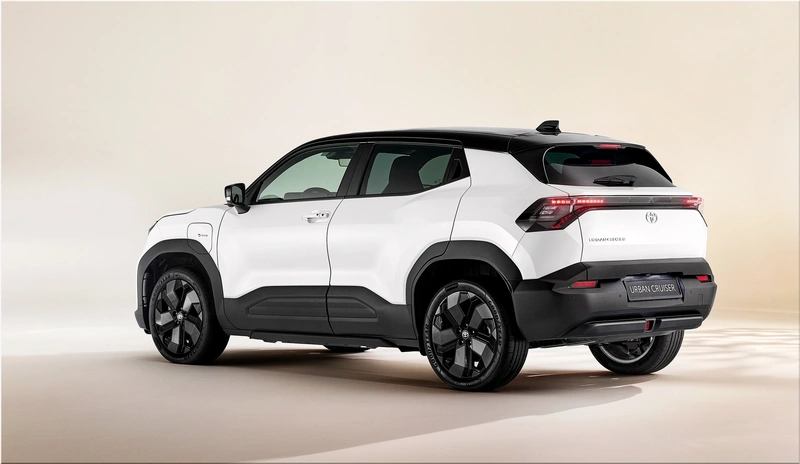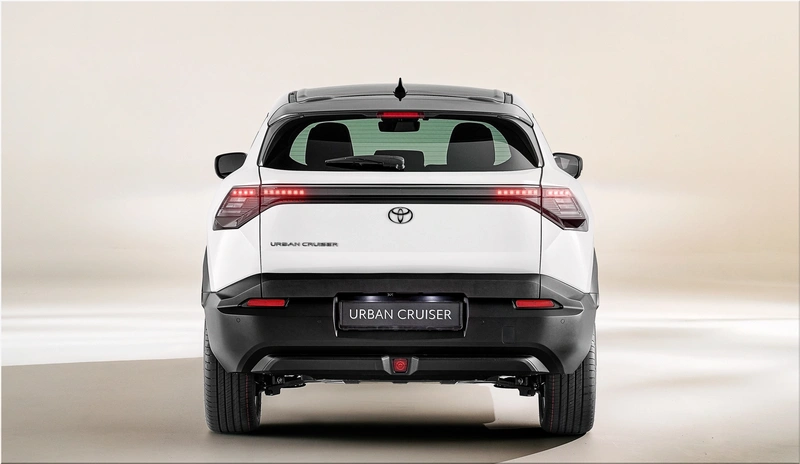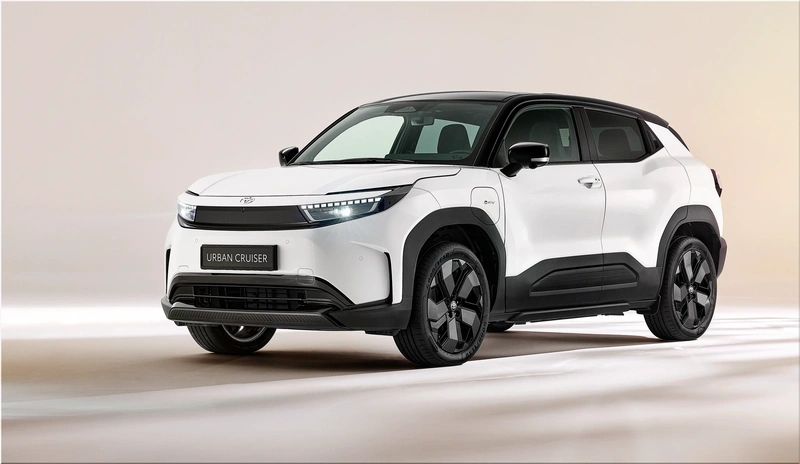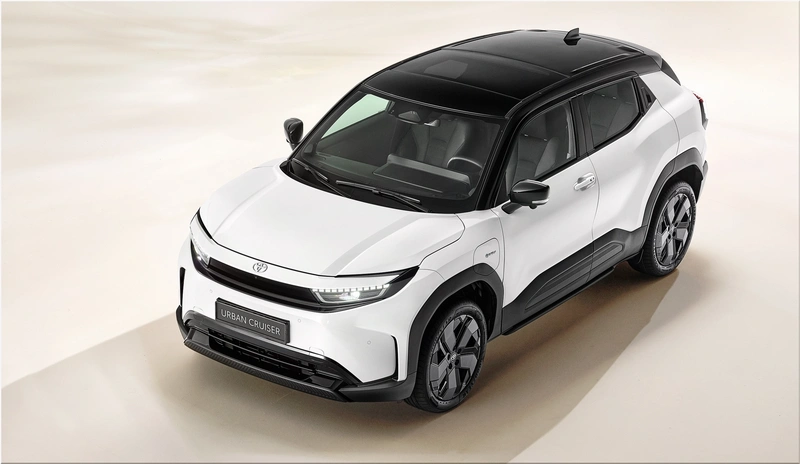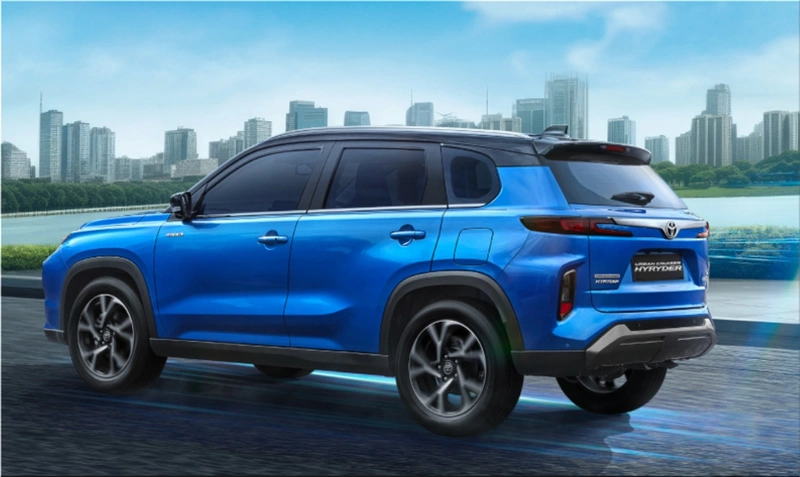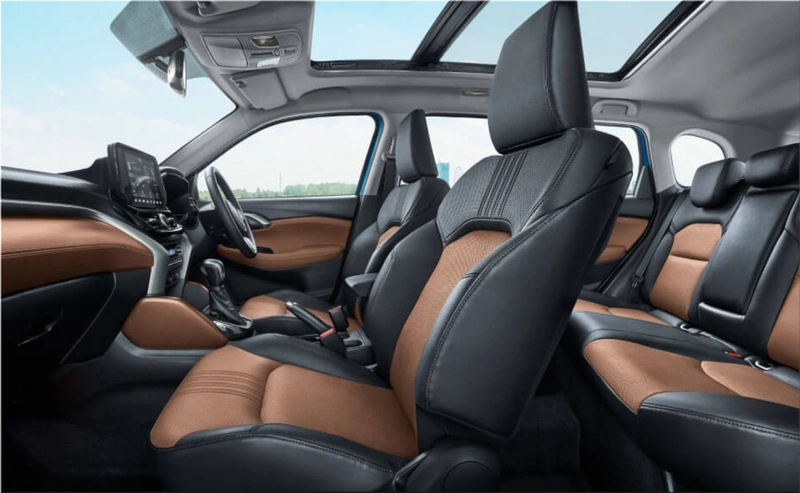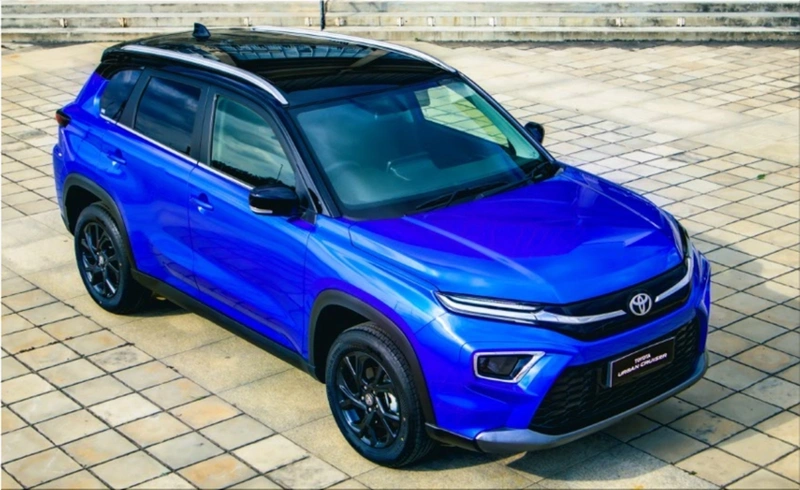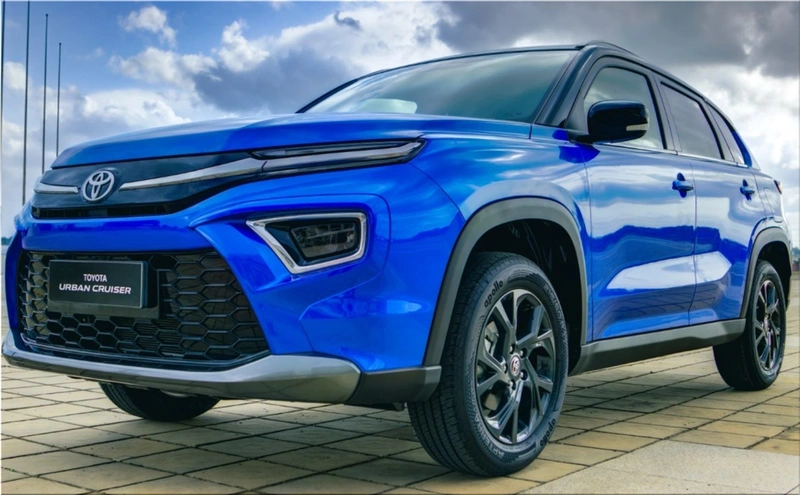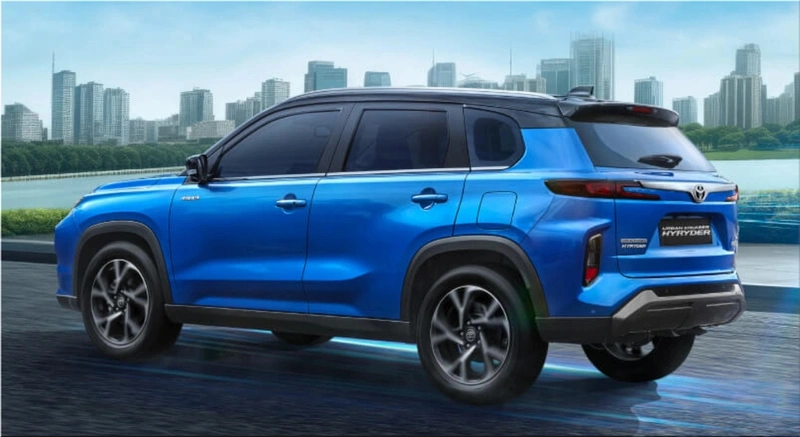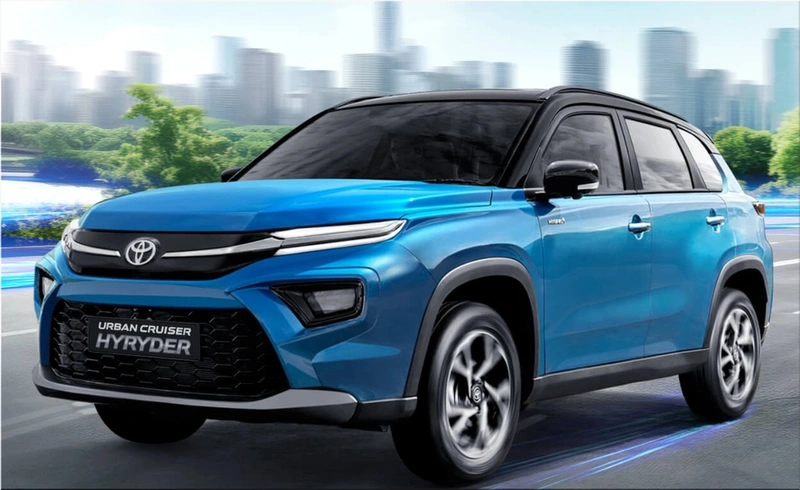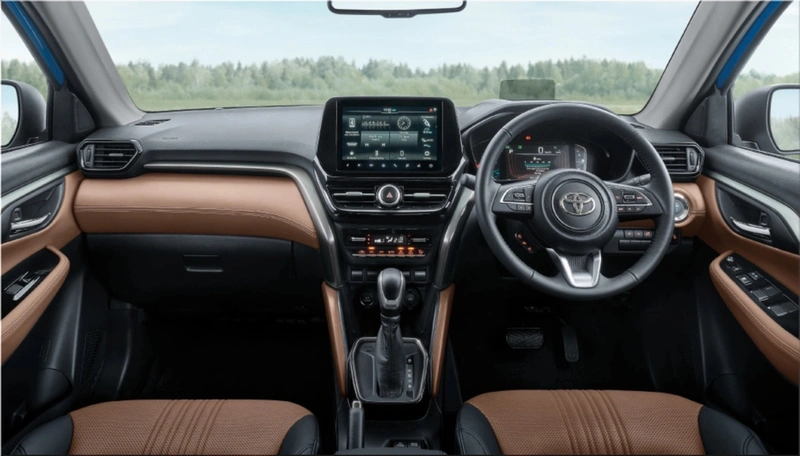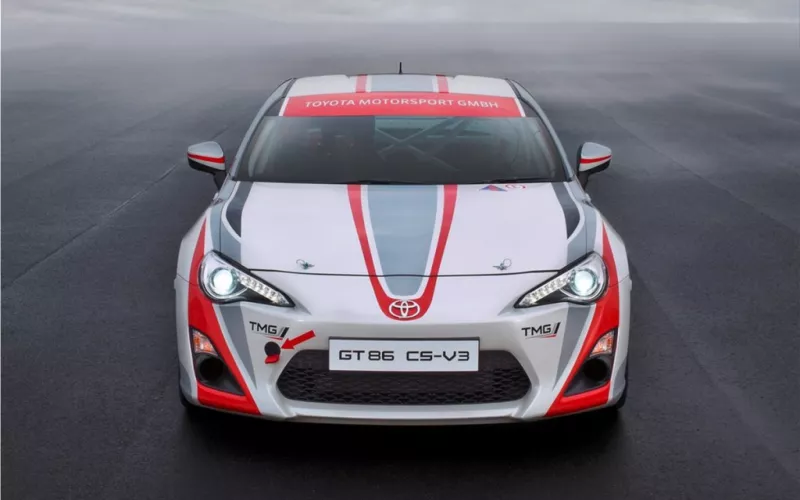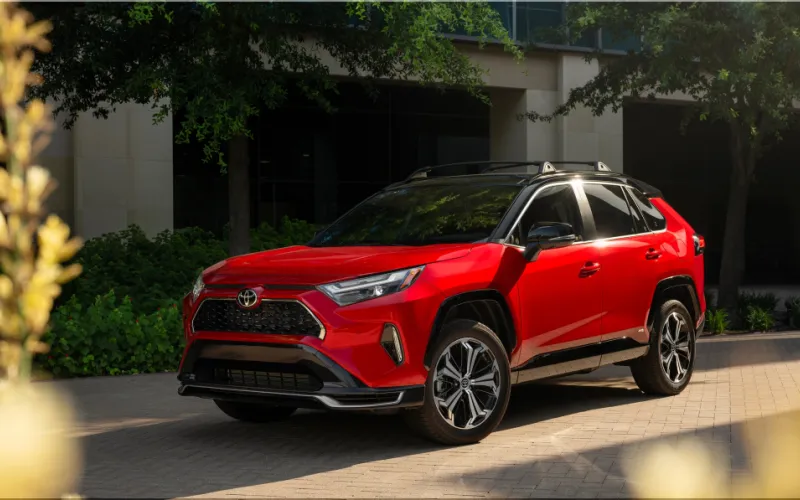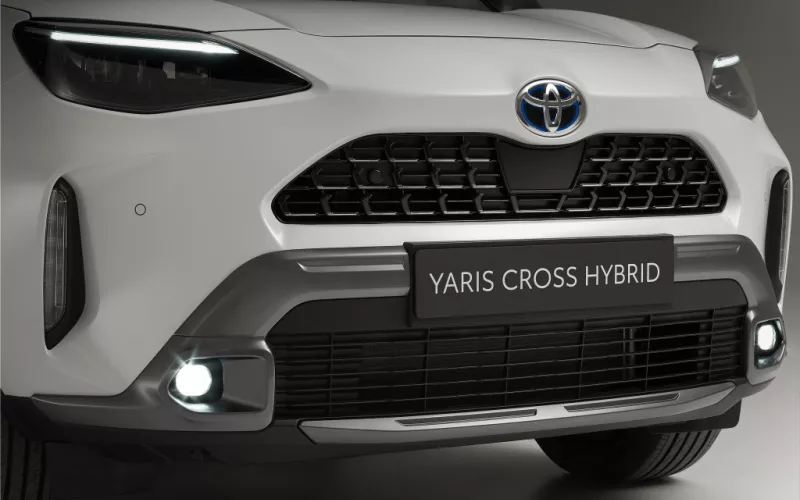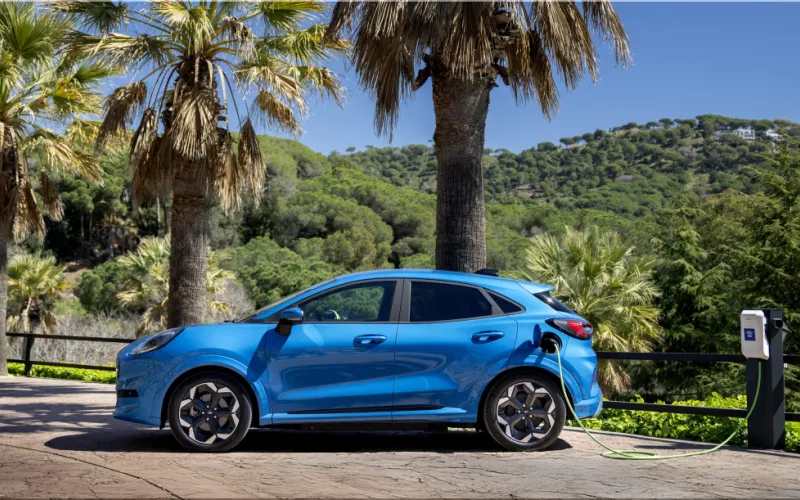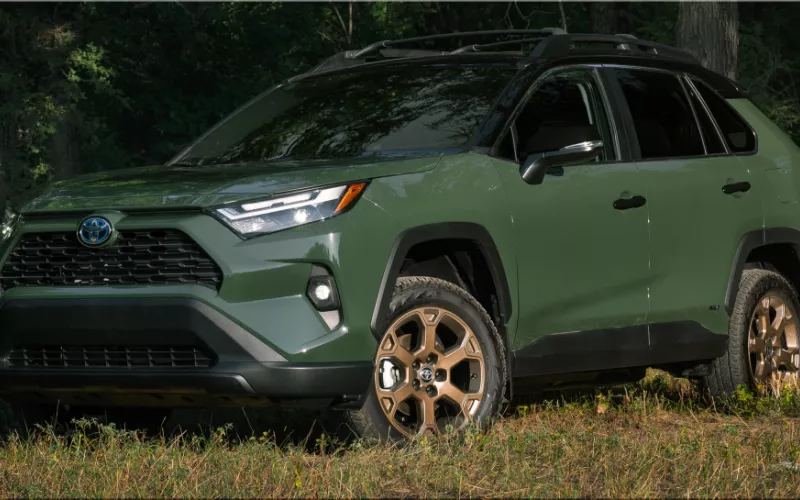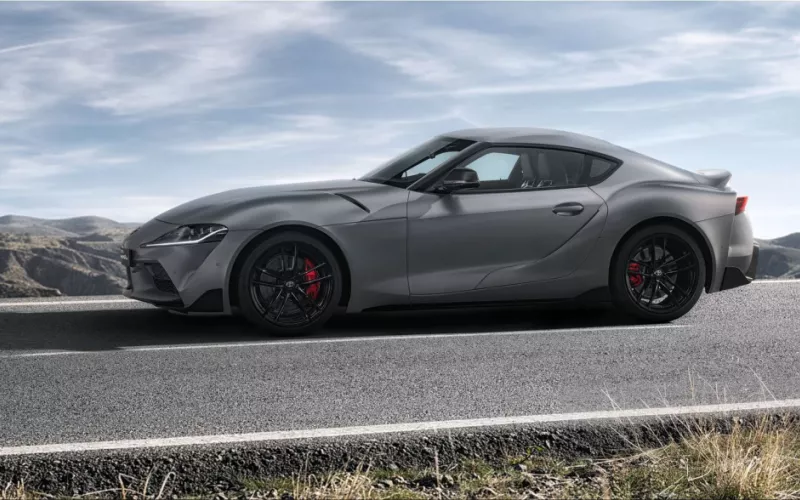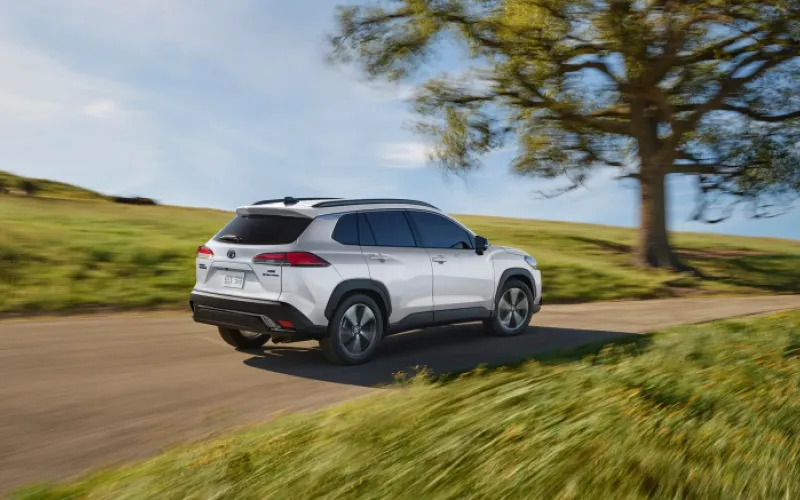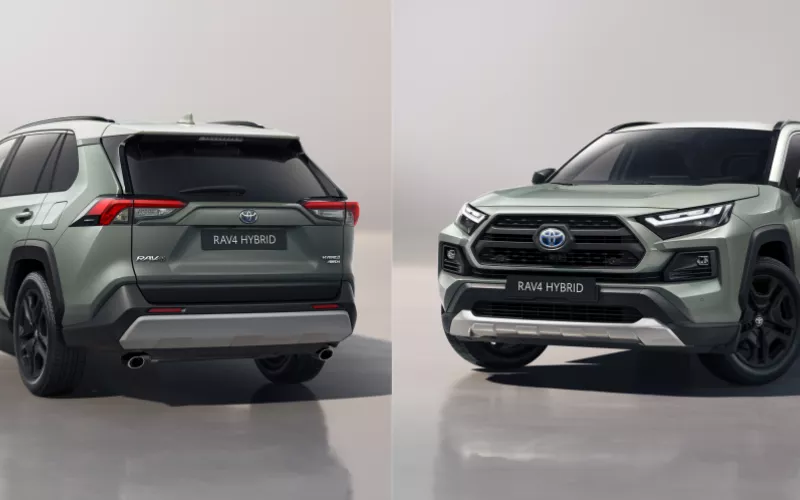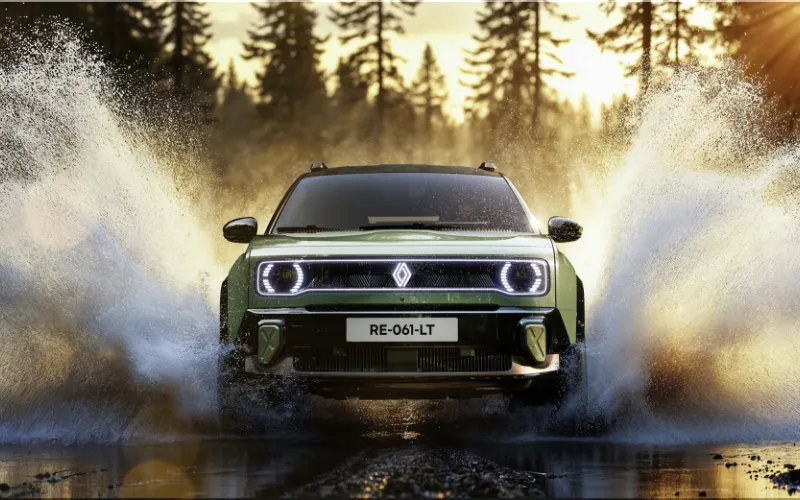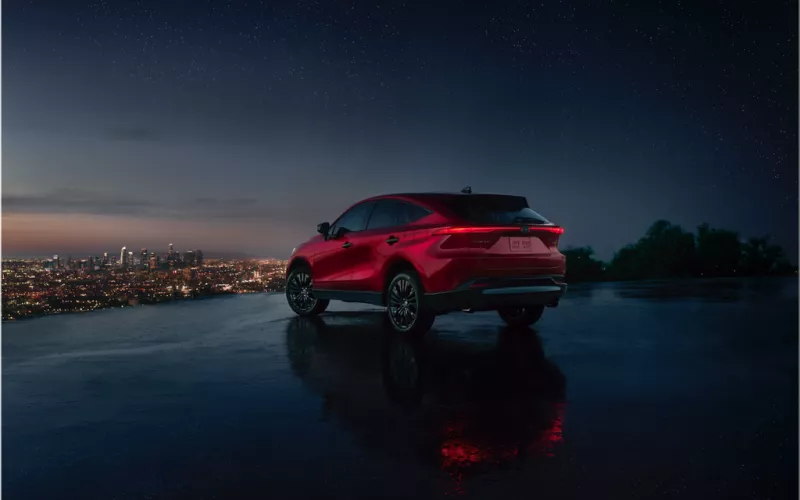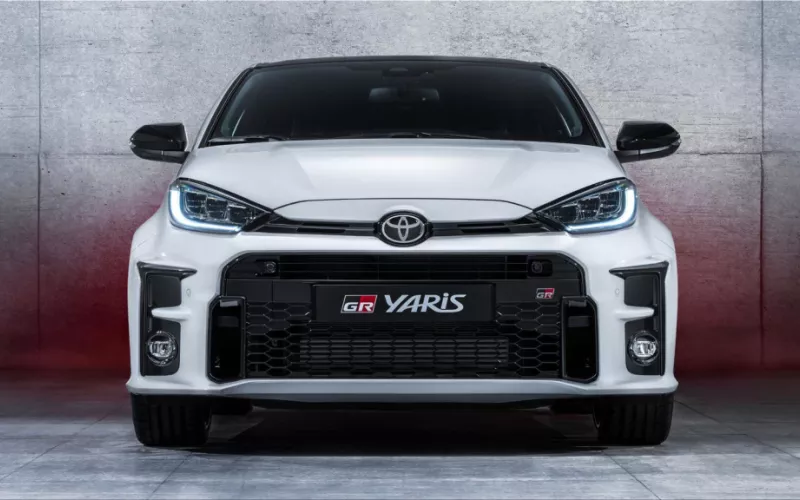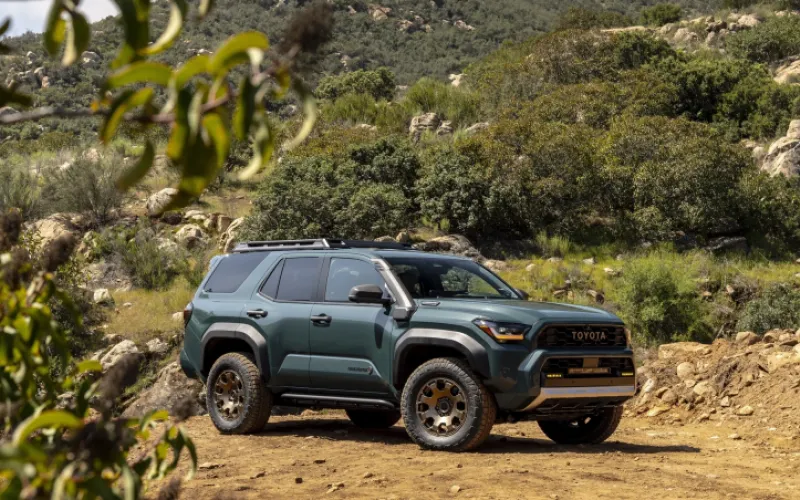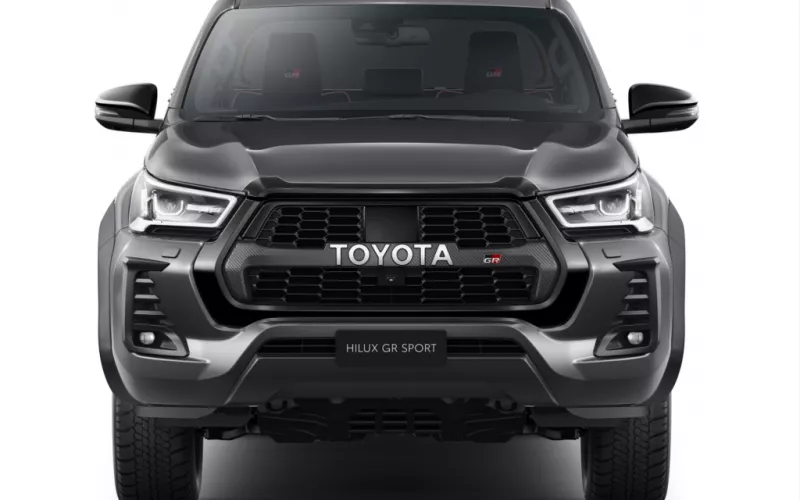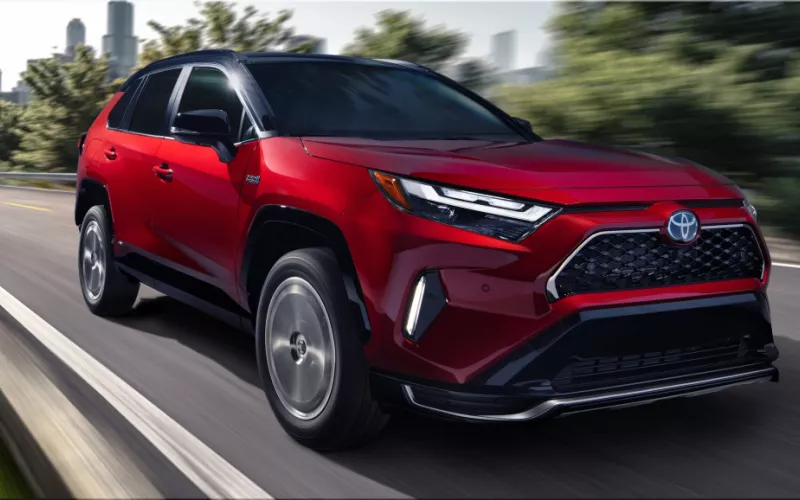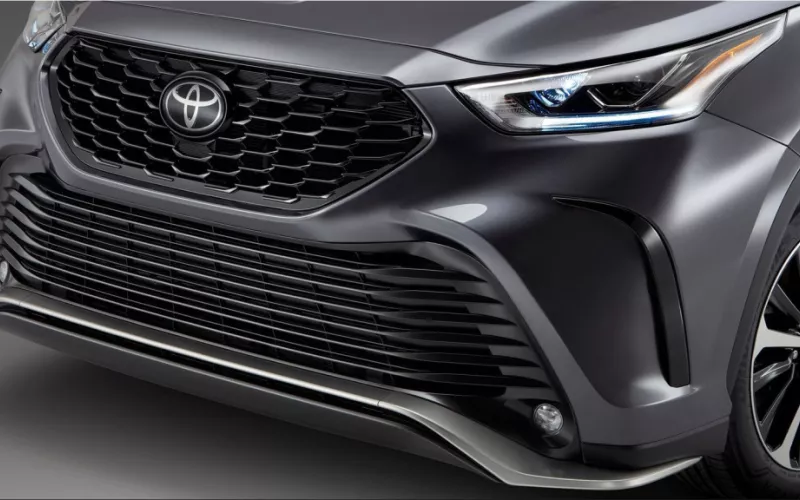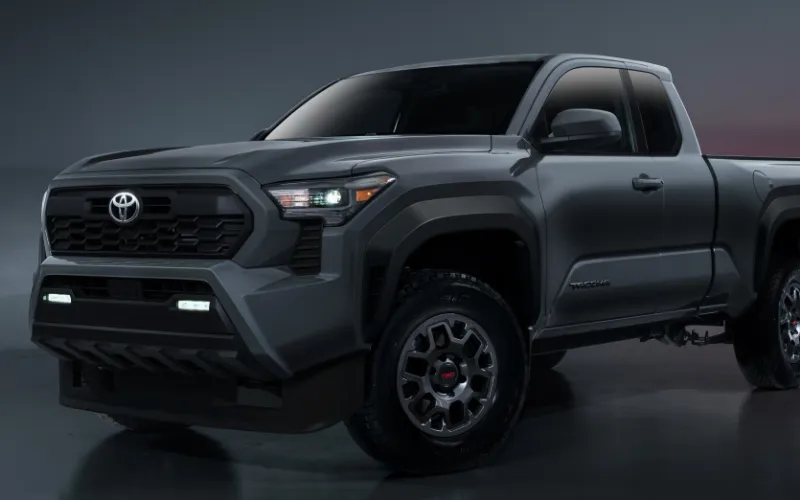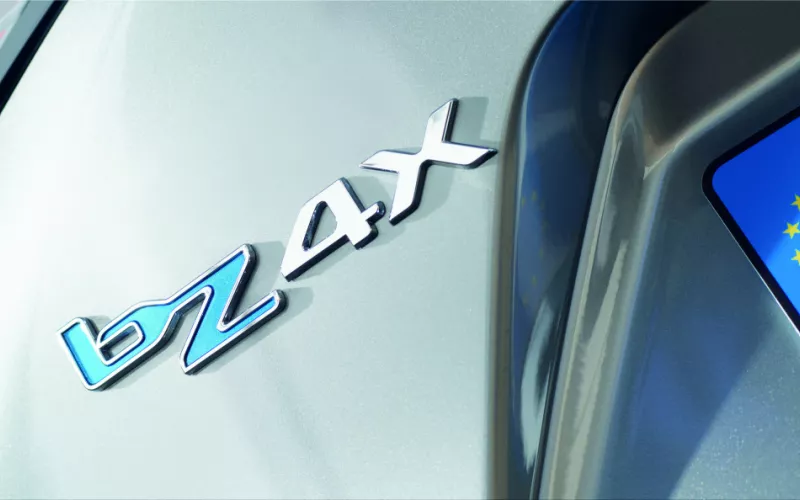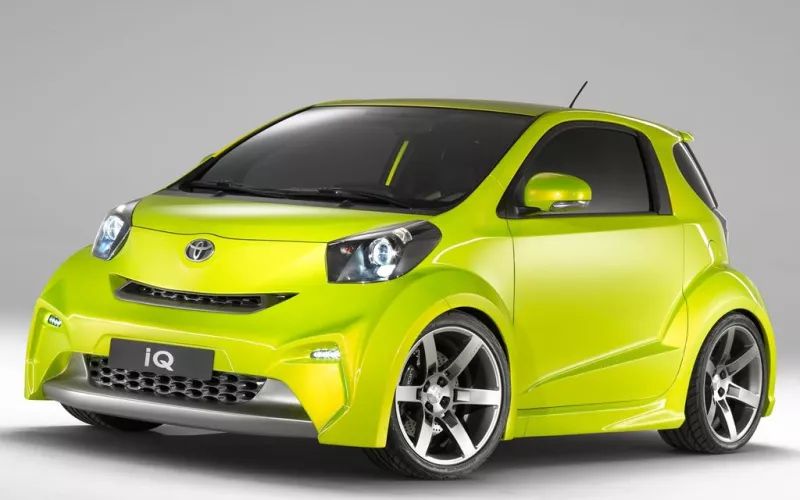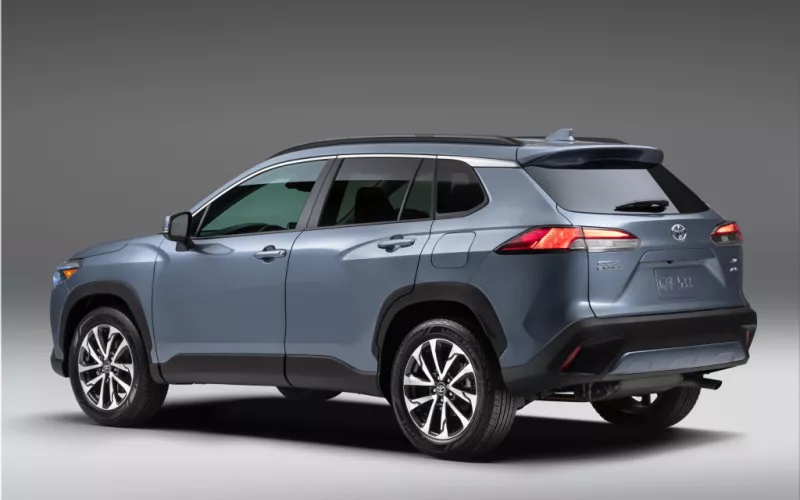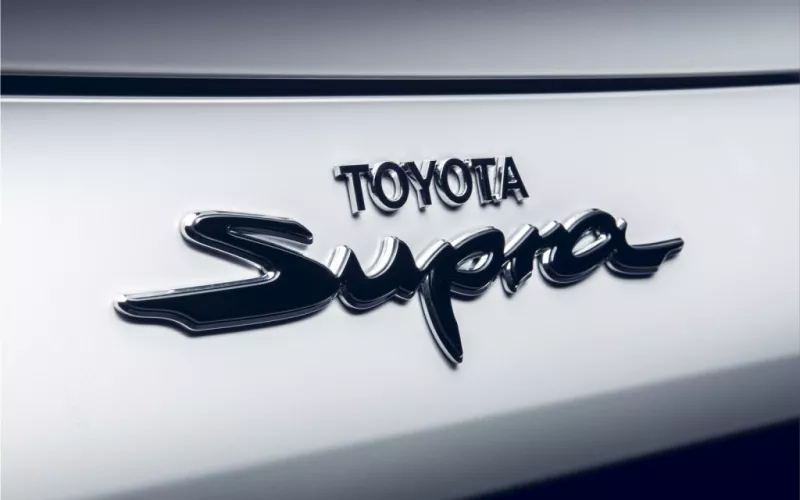Meet the 2025 Toyota Urban Cruiser EV, the compact electric SUV that doesn’t need fireworks to get your attention. Toyota engineered this EV for people who read spec sheets like bedtime stories and believe torque figures are more important than TikTok followers. Built on the DNGA platform, co-developed with Suzuki, it’s a modest yet strategic move in Toyota’s evolving EV strategy.
This is not an electric crossover trying to reinvent the wheel. It’s trying to make the wheel affordable, efficient, and easy to park in a crowded Tesco lot.
Dimensions: Parking Friendly Without Feeling Like a Shoebox
The Toyota Urban Cruiser EV slots under the bZ4X and above a Yaris Cross, if you’re keeping track with a yardstick. It measures:
- Length: 4,285 mm
- Width: 1,800 mm
- Height: 1,640 mm
- Wheelbase: 2,700 mm
That extended wheelbase means your passengers no longer have to perform yoga to exit the back seat. The increased size over the Yaris Cross delivers better rear legroom and a more stable ride at highway speeds.
Exterior styling leans conservative. You get a hammerhead front, full-width LED tail lamps, and no cartoonish fake grilles. This isn’t a design trying to get likes on social media; it’s trying to avoid becoming a meme.
Powertrain and Performance: Enough Juice, No Drama
You won’t get triple-motor burnout videos here. Toyota offers two battery options and a focus on simplicity:
| Battery (kWh) | Drive | Power (hp) | Torque (Nm) | 0–60 mph (est.) |
|---|---|---|---|---|
| 48 | FWD | 138 | 206 | ~9.8 seconds |
| 60 | FWD | 170 | 206 | ~8.5 seconds |
| 60 | AWD | 191 | 300 | ~7.8 seconds |
Note: Toyota rounds battery numbers (actual capacity: 48 kWh and 60 kWh usable).
The AWD version uses an eAxle system and borrows ALLGRIP-e traction tech from Suzuki. That’s right, it’s got Suzuki’s AWD brains in Toyota’s body—a collab no one expected but somehow makes sense.
AWD models add Multi-Terrain Select, Hill Descent Control, and a few extra Nm of torque to help with wet leaves or poorly paved driveways. Don’t expect Baja races. Expect winter commutes handled with quiet competence.
Range: 250 Miles or "Two Weeks of Groceries"
Toyota targets a 250-mile range from the 60 kWh battery on FWD models. Not Tesla-long, but perfectly suited for most drivers with regular commutes. The 48 kWh model drops range to around 210 miles—better for city-focused buyers who forgot what a highway looks like.
Charging times haven’t been fully detailed, but expect DC fast charging up to 80% in about 45 minutes. This isn’t an 800-volt system, but then again, neither is your budget.
Interior Tech: Screens Where You Need Them, Buttons Where You Want Them
Inside, Toyota avoids the touch-everything trend. You get:
- 10.1-inch touchscreen (central infotainment)
- 10.25-inch driver display
- Wireless Apple CarPlay and Android Auto
- Physical HVAC controls (blessed be)
Cabin materials lean practical. Think "family dog-proof" rather than "fashion-forward." The boot offers simulated leather trim, and there’s ambient lighting if you want to pretend this is a Lexus after dark.
Toyota claims segment-leading rear seat headroom—which means even your tall friends won’t curse you after 15 minutes. There's boot space up to 460 liters, which is enough for a Costco run or a collapsed folding bike.
Trim Breakdown: Simple Choices, No Upselling Circus
Toyota keeps the trim lineup simple:
- Base Model: 48 kWh, FWD, decent kit, perfect for urban fleets or tech-averse uncles.
- Mid-Tier: 60 kWh, FWD, adds more range and polish.
- AWD Variant: 60 kWh, dual motor, trail control, and winter-readiness baked in.
All trims include Toyota Safety Sense, which brings:
- Pre-collision braking
- Lane tracing assist
- Blind-spot monitoring
- Rear cross-traffic alert
Because the only thing worse than curbing your new wheels is explaining it was your fault.
Pricing: Reasonable, Not Revolutionary
Toyota UK confirmed a starting price of around £35,000 (≈ $44,500 USD). That slots it beneath the bZ4X and well under luxury EVs.
Let’s put that in perspective:
| Model | Starting Price (USD) | Range (mi) | AWD Available |
|---|---|---|---|
| Toyota Urban Cruiser EV | ~$44,500 | 250 | Yes |
| Hyundai Kona Electric | ~$42,000 | 261 | No |
| Volkswagen ID.4 | ~$45,000 | 275 | Yes |
| Tesla Model Y | ~$49,900 | 330 | Yes |
It may not win the spec war, but it avoids being overpriced for what you get. And that’s half the battle in a segment where new EVs often feel like luxury experiments.
Ride and Handling: Predictable, Which Is a Compliment
The Urban Cruiser EV prioritizes comfort over sportiness. Steering is light but accurate. Suspension soaks up potholes without shaking loose your coffee. Think Yaris Cross with more stability and slightly more ride polish.
Noise insulation is better than expected for a sub-bZ4X model. Wind noise only kicks in above 75 mph. The chassis feels stiffer than it needs to be, which helps confidence during highway lane changes.
Verdict? It rides like a Corolla on stilts—which, considering how refined the latest Corolla is, isn’t an insult.
Toyota’s EV Strategy: Slow Burn, Now Heating Up
Toyota took its time entering the BEV space. The Urban Cruiser EV arrives alongside a new wave of compact electric offerings targeting practical buyers—not hype-driven early adopters.
This isn’t Toyota’s flagship EV. That’s the bZ4X’s job (kind of). But the Urban Cruiser EV will likely outsell it in many markets. Why? Simplicity. Familiarity. Cost control.
Toyota says production begins in late 2024. Europe and Asia get it first. A North American version hasn’t been confirmed, but it wouldn't be surprising to see a rebadged variant through the Toyota–Suzuki alliance later in 2025.
Buying Advice: Who This EV Is Really For
Good Match For:
- City drivers wanting electric without overstretching their finances.
- Families who want small SUV space and real AWD.
- Budget-conscious buyers burned out on Tesla updates and repair bills.
Not Ideal For:
- Tech enthusiasts chasing 0–60 bragging rights.
- Drivers who treat road trips like cross-country rally raids.
- Shoppers allergic to hard plastics.
Final Word: Toyota Plays It Smart
The 2025 Toyota Urban Cruiser EV is the EV equivalent of a well-balanced breakfast: not flashy, but it gives you what you need. It skips gimmicks, focuses on real-world numbers, and doesn’t try to reinvent basic transportation.
It's not about trend-chasing or lifestyle branding. It's about making sure your car starts every morning, gets you to work, and never asks for a software subscription to heat your seats.
If that sounds boring, you're not the target. But if that sounds like sanity, Toyota might just have built your next EV.
- Add new comment
- 9 views
